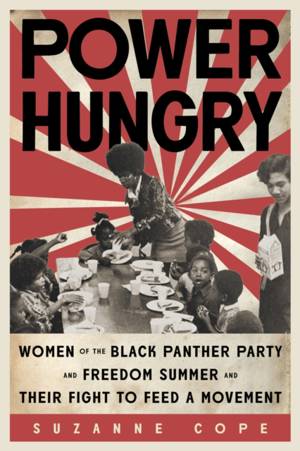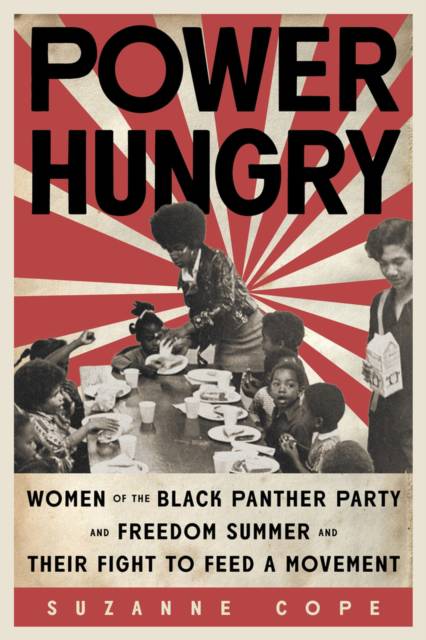
Bedankt voor het vertrouwen het afgelopen jaar! Om jou te bedanken bieden we GRATIS verzending aan op alles gedurende de hele maand januari.
- Afhalen na 1 uur in een winkel met voorraad
- Gratis thuislevering in België
- Ruim aanbod met 7 miljoen producten
Bedankt voor het vertrouwen het afgelopen jaar! Om jou te bedanken bieden we GRATIS verzending aan op alles gedurende de hele maand januari.
- Afhalen na 1 uur in een winkel met voorraad
- Gratis thuislevering in België
- Ruim aanbod met 7 miljoen producten
Zoeken
Power Hungry
Women of the Black Panther Party and Freedom Summer and Their Fight to Feed a Movement
Suzanne Cope
Hardcover | Engels
€ 38,95
+ 77 punten
Omschrijving
Two unsung women whose power using food as a political weapon during the civil rights movement was so great it brought the ire of government agents working against them In early 1969 Cleo Silvers and a few Black Panther Party members met at a community center laden with boxes of donated food to cook for the neighborhood children. By the end of the year, the Black Panthers would be feeding more children daily in all of their breakfast programs than the state of California was at that time. More than a thousand miles away, Aylene Quin had spent the decade using her restaurant in McComb, Mississippi, to host secret planning meetings of civil rights leaders and organizations, feed the hungry, and cement herself as a community leader who could bring people together--physically and philosophically--over a meal. These two women's tales, separated by a handful of years, tell the same story: how food was used by women as a potent and necessary ideological tool in both the rural south and urban north to create lasting social and political change. The leadership of these women cooking and serving food in a safe space for their communities was so powerful, the FBI resorted to coordinated extensive and often illegal means to stop the efforts of these two women, and those using similar tactics, under COINTELPRO--turning a blind eye to the firebombing of the children of a restaurant owner, destroying food intended for poor kids, and declaring a community breakfast program a major threat to public safety. But of course, it was never just about the food.
Specificaties
Betrokkenen
- Auteur(s):
- Uitgeverij:
Inhoud
- Aantal bladzijden:
- 304
- Taal:
- Engels
Eigenschappen
- Productcode (EAN):
- 9781641604529
- Verschijningsdatum:
- 9/11/2021
- Uitvoering:
- Hardcover
- Formaat:
- Genaaid
- Afmetingen:
- 160 mm x 230 mm
- Gewicht:
- 653 g

Alleen bij Standaard Boekhandel
+ 77 punten op je klantenkaart van Standaard Boekhandel
Beoordelingen
We publiceren alleen reviews die voldoen aan de voorwaarden voor reviews. Bekijk onze voorwaarden voor reviews.












